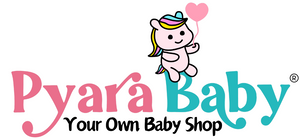Labelling children: How it is damaging for them
 Labels have a profound effect on how children perceive themselves and navigate their social environments. From the innocent "shy" or "quiet" to more damaging stereotypes, the tags we assign to kids can significantly impact their self-esteem, behaviour, and relationships.
Labels have a profound effect on how children perceive themselves and navigate their social environments. From the innocent "shy" or "quiet" to more damaging stereotypes, the tags we assign to kids can significantly impact their self-esteem, behaviour, and relationships.
The Power of Words

Words hold immense power, especially when they define who we are. Children, in their formative years, are particularly vulnerable to the influence of labels. Whether it's a teacher tagging them as "troublemakers" or a friend labelling them as "bossy," these descriptors can become ingrained in a child's self-image. More often it is our immediate family or friends casually labelling the little ones with terms like “clingy”, “naughty” among others, affecting both the child as well as the parent.
Impact on Self-Image
Labels can either empower or constrain a child's sense of self. Positive labels like "creative" or "curious" can nurture confidence and encourage the development of those traits. However, negative or limiting labels often lead to self-doubt and can restrict a child's willingness to explore new interests or activities.
Social Dynamics
Friends and peers also contribute significantly to labelling. Children are quick to categorize each other, sometimes without understanding the weight of their words. Labels like "nerd," "jock," or "weird" can pigeonhole a child into a certain role, affecting how they are perceived by others and, consequently, how they see themselves.
Long-Term Effects
The impact of labelling doesn't fade quickly. Children internalize these descriptions, which can affect their choices, relationships, and mental health well into adulthood. Persistent labelling may lead to feelings of inadequacy, anxiety in social situations, or a reluctance to express oneself authentically.
Creating a Label-Free Environment
As adults, educators, and caregivers, it's crucial to foster an environment that values individuality and discourages labelling. Encouraging positive reinforcement and constructive feedback can help steer conversations away from fixed labels and towards growth-oriented discussions.
Empathy and Understanding
Teaching empathy and understanding is key. It's essential for children to recognize the impact of their words and actions on others. By promoting a culture of kindness and appreciation for diversity, we can create a space where everyone feels accepted and valued for who they are.
Moving Forward
Breaking away from labelling requires conscious effort. Encouraging children to embrace their unique qualities, appreciate differences, and focus on strengths rather than limitations can gradually shift the narrative.
Conclusion
The labels we assign to children hold immense weight, shaping their identities and influencing their lives in profound ways. By fostering an environment of acceptance, empathy, and positivity, we can empower children to thrive beyond the constraints of limiting labels.

Let's strive to build a world where every child feels free to be themselves, unbounded by the confines of stereotypes and labels.


